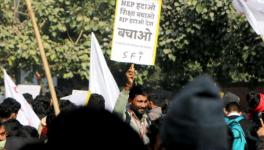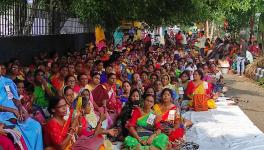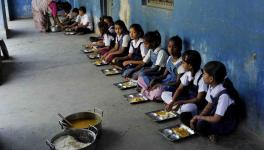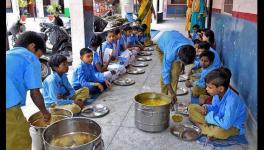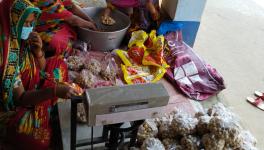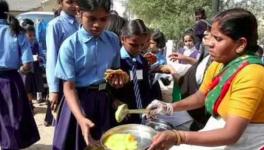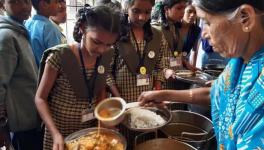Over 80% Parents Say Education Not Delivered by Govt Schools During Lockdown: Study
Over 80% of parents of children studying in government schools in five states said that education was not delivered during the lockdown, according to a new survey by Oxfam India. With the intention of understanding the impact of the pandemic on access to education, modes of education delivery and access to entitlements in both government and private schools, Oxfam India carried out a rapid assessment that surveyed close to 1,200 parents and 500 teachers across Odisha, Bihar, Jharkhand, Chhattisgarh and Uttar Pradesh.
In March, the Supreme Court had directed states to ensure supply of mid-day meals (MDM) amid the closure of schools due to the pandemic-induced lockdown. All the states that form a part of the Oxfam study—Uttar Pradesh, Odisha, Bihar, Chhattisgarh and Jharkhand, had issued orders around distribution of mid-day meal. Despite this, the survey shows that 35% children did not receive their mid-day meals. Of the remaining 65%, only 8% received cooked meals while 53% received dry rations and 4% received money in lieu of the mid-day meal. Of the states surveyed, Uttar Pradesh fares the worst where 92% children have been deprived of their mid-day meals (in any form) while Chhattisgarh fares the best where over 90% children have received mid-day meals.
Despite announcements and claims by state governments of continuing to deliver education during the lockdown through different mediums including TV and online classes, over 80% parents reported that education was not delivered during the lockdown; in Bihar, this figure was 100%. The Survey said, “This could be interpreted in two ways- 1) A lack of awareness amongst parents/children about modes through which education was being delivered or 2) Lack of devices/mediums to access education being delivered. Evidence points to the latter.” It also pointed out that with education being delivered predominantly online, 85% rural children will be excluded from its purview since only 15% rural households have access to the internet – this figure is even lower for marginalised social groups such as dalits, adivasis and Muslims. Dependence on digital modes also excludes girls since access to digital devices is gendered – only 29% of India’s internet users are women.
In the cases where education is being ‘delivered’, the dominant mode is WhatsApp (75%) followed by phone calls between the teacher and the student (38%). This is similar to how private schools have ‘delivered’ education, with their dependence on WhatsApp as the primary mode of delivery. Clearly, these are mediums for information dissemination and cannot strictly be seen as ‘delivering’ education. Travel and movement constraints, particularly during the early days of the pandemic is one of the key reasons why education delivery moved online.
Also read: India’s Digital Divide: Who Faces it and How Wide is it?
According to the survey, in addition to the pedagogical issues with the use of WhatsApp, access continues to be an issue – over 75% parents of children studying in government schools reported a host of challenges in supporting children to access education digitally including not having an internet connection, being unable to afford data, and internet speed not being conducive.
For government schools, a staggering 84% teachers reported facing challenges in delivering education digitally with close to half the teachers facing issues related to the internet (signal issues and data expenses). Two out of every five teachers lack the necessary devices to deliver education digitally; the situation is particularly grave in UP and Chhattisgarh where 80% and 67% teachers, respectively, lack the requisite devices to deliver education online. The challenges are directly linked to a lack of teacher preparedness— less than 20% teachers reported receiving orientation on delivering education digitally while in Bihar and Jharkhand, the figure was less than 5%.
The study highlights the impact of prolonged school closure on children in government schools. A third of the students continue to be deprived of mid-day meals while textbooks have not been received by over 80% children. Current modes of education delivery have relied heavily on technology, leading to the exclusion of over 80% students, who have remained disconnected from education since schools were closed over five months ago. It also highlights the lack of teacher preparedness and the ‘complete lack of capacity building/support by state governments to deliver education digitally.’
It said, “As the policy discussion moves towards reopening of schools, it is crucial to keep in mind that over 40% schools are being used as quarantine/ration distribution centres and 43% teachers believe that WASH facilities in their school are not adequate to promote safe, hygienic practices. Thus, there is a need to ensure that schools are thoroughly disinfected and adequate WASH facilities are set up in schools prior to reopening.”
Also read: How the Lockdown Destroyed Children’s Nutrition Programmes
Get the latest reports & analysis with people's perspective on Protests, movements & deep analytical videos, discussions of the current affairs in your Telegram app. Subscribe to NewsClick's Telegram channel & get Real-Time updates on stories, as they get published on our website.











